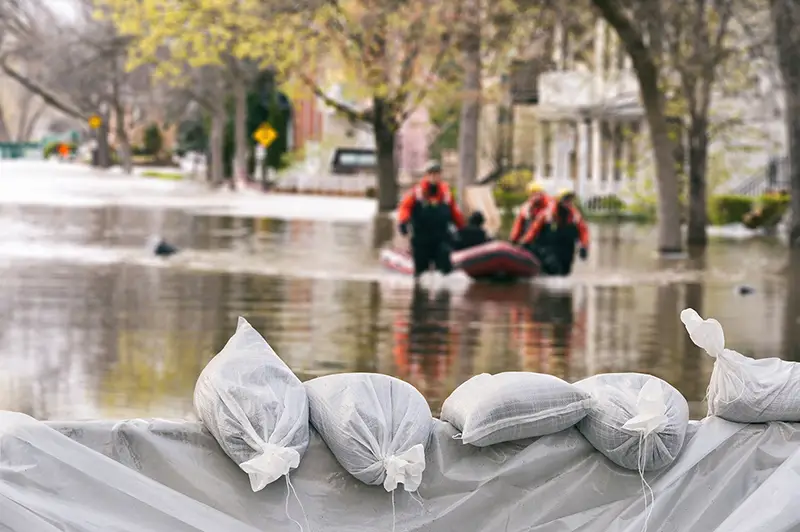Click here to get this post in PDF
Business success is often attributed to various proactive decisions that are made at the management level. However, these decisions don’t determine business success or failure solely. Other factors, including how business managers handle situations that aren’t within their control, such as natural disasters, also influence business success and failure.
Natural disasters, including hurricanes, earthquakes, or tornados, can disrupt business plans and projections. These calamities affect all aspects of your business, right from the supply chain, employees, storage facilities, distributors to clients. However, different businesses respond differently to these calamities.
Obviously, large and established businesses can recover faster from natural disasters compared to small businesses. The guide below contrasts how the effects of natural calamities differ in small and large businesses.
1. Capital
Capital is essentially the financial muscle that businesses rely on to purchase their products and pay for the labor that facilitates business operations. Unfortunately, striking natural disasters negatively affect business capital since businesses have to channel the available capital towards restoring damaged assets instead of advancing business operations.
As mentioned, the impact of natural calamities on large businesses differs from small businesses. In this case, large businesses have large amounts of capital compared to startups. Therefore, besides funding business recovery, some established businesses actually have funds set aside for anticipated disaster recovery.
Large businesses can invest part of the available funds in short-term securities that earn interests following a disaster. If the disaster is overly devastating, they can access a large pool of capital from financial institutions to restore business operations.
On the other hand, small businesses don’t have the luxury of saving part of their revenue for anticipated disaster recovery plans. Besides, in the event of a natural disaster, small businesses may use all the available capital in recovery efforts, affecting recurrent personal and business expenses. With reduced capital, small businesses will opt for external funding, which affects future cash outflows.
2. Business Assets
Business assets are typically physical items used in business operations. Natural disasters can render various vital physical assets unusable, such as physical shops, supply vehicles, and storage facilities. However, large businesses can mitigate the effect of operational or natural disasters by operating from multiple locations. If a disaster damages one location, large businesses can shift activities to other facilities, maintaining normal business operations.
Contrastingly, small businesses operate from one location. Business assets are centered in this location or at the home of the business owner. If a disaster strikes and damages business assets, the business won’t continue its operations. Small business owners may also have to spend a lot of time repairing or replacing these assets.
3. Personnel
Human labor is essential in overseeing all business operations. Large businesses employ many people who can restore business operations even after the disaster. Even though managers and employees can work from home due to technological resources, business operations remain unaffected.
However, the shortage of personnel significantly affects small businesses. Restoring business operations will take time, and injured employees mean more setbacks to the business. Additionally, the business won’t be able to hire new/additional employees due to limited capital. As such, small businesses may not reopen after a severe disaster.
4. Disruption in Supply Chain
A reliable and efficient supply chain is an important factor in ensuring the success of businesses. For instance, a continuous milk supply is important for cheese-making factories to operate. Unfortunately, natural disasters may interrupt the supply chain due to damaged roads, bridges, and other transport networks.
This means that moving raw materials and products from various businesses becomes impossible. However, as mentioned, large businesses that operate from multiple locations can source supplies and continue their operations in unaffected areas. On the other hand, small businesses that rely on local suppliers will have to close their businesses.
5. Loss of Clientele
Even though some people live in disaster-prone areas, frequent natural disasters will force them out of these affected areas. Therefore, businesses operating in these areas will have to close due to the loss of employees and target market. Obviously, this isn’t a challenge to large businesses, as they will maintain operations in other unaffected areas.
However, this won’t be the same situation for small businesses. For starters, they will have to close the business to relocate with the general population. That aside, customers who remain in the area will direct their finances towards rebuilding their homes and other pressing needs, leading to decreased business operations in specific businesses, such as entertainment centers.
Conclusion
While avoiding the effects of natural calamities is impossible, both small and large businesses should develop a business continuity plan. Developing this plan helps businesses identify and plan for possible vulnerabilities. Worst-case scenarios are identified alongside possible solutions to mitigate ramifications.
Large and small businesses, especially those operating in disaster-prone areas, should diversify their business activities, insure their businesses, and work with restoration experts to ease and quicken recovery after a disaster.
You may also like: How To Safeguard Your Business Against Natural Disasters
Image source: Shutterstock.com

